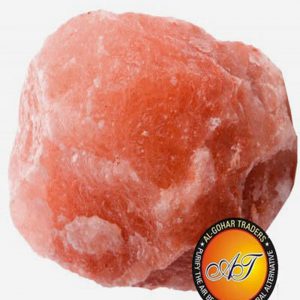Salt, or sodium chloride (NaCl), is an essential component of the diet for all livestock, including goats. Observing goats licking salt or actively seeking out sources of salt is a common sight on farms. This behavior isn’t just instinctive; it reflects a fundamental need for salt in their overall health, growth, and productivity. In this article, we’ll delve into why goats lick salt, its benefits, the types of salt available for goats, and how to incorporate salt into their diet effectively.
Algohar World natural salt lamps that are believed to provide various benefits, combining both the aesthetic appeal and the potential health advantages associated with Himalayan salt lamps.
Why Do Goats Lick Salt?
Natural Instinct
Licking salt is a natural behavior for goats, rooted in their biological needs. Goats, like many herbivores, require salt to regulate various bodily functions. In the wild, they instinctively seek out natural salt deposits or consume plants with high sodium content to meet this need.
Sodium Deficiency
Salt licking often indicates a deficiency of sodium or other trace minerals in a goat’s diet. Sodium is vital for nerve function, muscle contraction, and maintaining fluid balance. When goats lack sufficient sodium, they may become lethargic, exhibit poor growth, or develop health issues, prompting them to seek out salt sources.
Palatability
Salt enhances the taste of feed and forage, encouraging goats to eat more. This is particularly beneficial when their diet includes less palatable ingredients or when introducing new feeds.
Benefits of Salt for Goats
Electrolyte Balance
Salt is crucial for maintaining the electrolyte balance in a goat’s body. Electrolytes, such as sodium and chloride, are necessary for hydration and cellular function, especially during hot weather or periods of stress.
Digestive Health
Adequate salt intake supports the production of saliva, which aids in digestion. Saliva contains bicarbonate, which helps buffer the rumen (a part of the goat’s stomach) and prevents issues like acidosis.
Growth and Development
Salt contributes to proper growth and development in young goats. It ensures that their metabolic processes function optimally, supporting healthy weight gain and skeletal development.
Milk Production
For lactating goats, salt is essential for maintaining milk production. Sodium plays a role in milk synthesis, and a deficiency can lead to reduced milk yield.
Mineral Supplementation
Salt is often combined with other essential minerals, such as calcium, phosphorus, and magnesium, to create mineral blocks or mixes. These supplements provide goats with a balanced intake of nutrients critical for their health.
Types of Salt for Goats
Plain Salt
Plain salt, available in loose or block form, is the simplest type of salt provided to goats. It contains only sodium chloride and is used to fulfill their basic sodium needs.
Mineralized Salt
Mineralized salt includes additional trace minerals like zinc, copper, selenium, and manganese. These are often tailored to meet the specific nutritional requirements of goats, particularly those raised for dairy or meat production.
Note: goat licking salt is a natural and essential behavior that reflects their need for sodium and other minerals.
Iodized Salt
Iodized salt contains iodine, which is essential for thyroid function and hormone production. It’s particularly beneficial in regions where soil and forage lack sufficient iodine.
Himalayan Salt
Himalayan salt is a natural, unrefined salt often provided as a lick block. It contains trace minerals that contribute to overall health. Its hard texture also helps keep goats occupied and prevents overconsumption.
Sea Salt
Sea salt is another natural option, containing a mix of sodium chloride and trace minerals. It’s less refined than plain salt and can be provided in loose form or as blocks.
Salt-Mineral Mixes
These are specially formulated supplements that combine salt with essential vitamins and minerals. They’re ideal for meeting the comprehensive dietary needs of goats, particularly in intensive farming systems.
4. How to Provide Salt to Goats
Free-Choice Salt Licks
Free-choice salt licks allow goats to consume salt as needed. This method is convenient and ensures goats get an adequate amount without the risk of over-supplementation.
Mixed in Feed
Salt can be mixed into the feed to ensure consistent intake. However, care must be taken to avoid adding too much, which can deter goats from eating their feed.
Loose Salt Feeders
Providing loose salt in feeders gives goats easy access to sodium while allowing them to regulate their intake. This method is particularly useful for goats that are reluctant to lick salt blocks.
Mineral Troughs
Placing salt-mineral mixes in dedicated mineral troughs ensures that goats can access both salt and essential minerals in one place.
Water-Soluble Salt
In some cases, salt can be added to drinking water. This method is typically used during hot weather or when goats show signs of dehydration and need additional electrolytes.
Signs of Salt Deficiency in Goats
Behavioral Changes
Excessive licking of non-food items like soil, rocks, or fences
Increased aggression or restlessness
Physical Symptoms
Poor coat condition
Weight loss or failure to gain weight
Reduced milk production in lactating does
Health Issues
Muscle weakness or cramps
Reduced appetite and digestive problems
Increased susceptibility to infections due to weakened immune function.
Conclusion
Goats licking salt is a natural and essential behavior that reflects their need for sodium and other minerals. Providing appropriate salt options in their diet ensures optimal health, productivity, and well-being. By understanding their needs, monitoring their consumption, and offering high-quality salt products, goat owners can support their livestock in thriving in various farming environments.
